Latest publications

Cultural Security. Theory – Selected Aspects
Cultural security is a concept that appeared relatively recently, but the issues within its scope – protection of identity and protection of cultural heritage – have accompanied humans almost since the dawn of time. In this monograph, an attempt is made to analyse cultural security taking into account various research perspectives and showing its multifaceted nature. This volume also constitutes a collection of case studies that focuses on the analysis of the state as the basic subject of cultural security. The authors attempted to define cultural security and the approach to it from various, often very different, research perspectives.
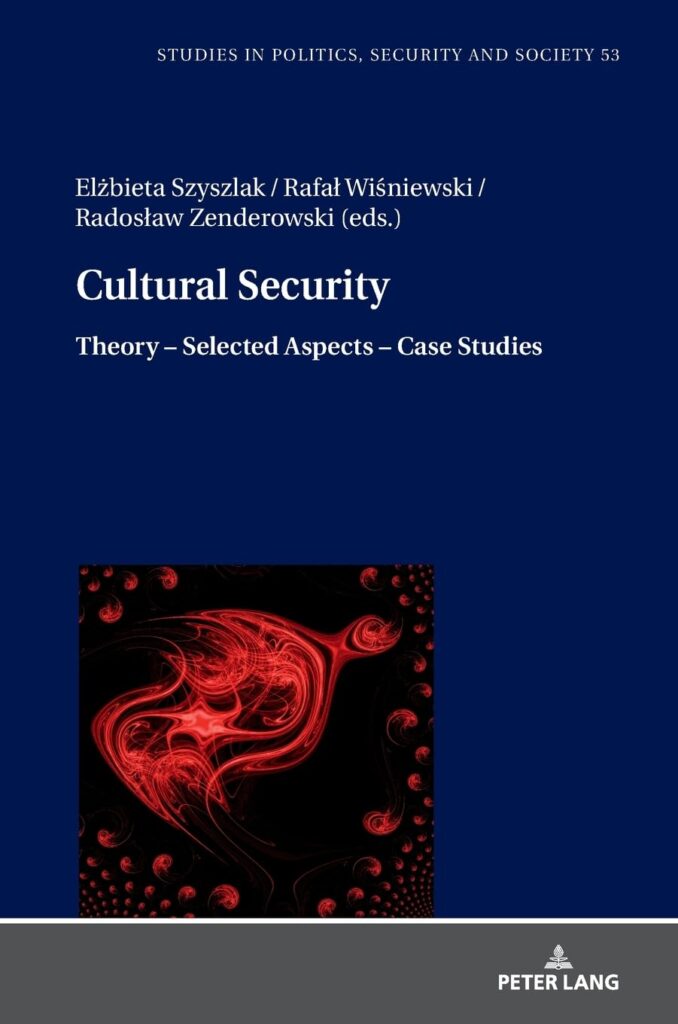

Media Systems in Balkan Countries: Context and Dynamics of Changes
We selected ten post-communist countries for this research. Eight of them are located on the Balkan Peninsula, from a geographical point of view. We added Romania and Slovenia for historical reasons. The main aim of research is to provide a model of the media system in each of them. We are interested in the political, societal, economic and technological situation, journalistic standards and media accountability. The important thing is to know how media systems evolve in each country, under the influence of political institutions and external stakeholders. We examined how political, media, economic and social systems co-work or influence each other and how they affect each other.
Metaphysics of Cooperation: Edward Abramowski’s Social Philosophy with a Selection of His Writings
The Metaphysics of Cooperation presents the intellectual achievements of the Polish associative socialist and pioneer of social sciences, Edward Abramowski. The volume is divided into five sections, each of them contains an analysis of Polish philosopher’s work according to the issues he dealt with: sociology, ethics, politics, cooperativism, and psychology. Each part also contains a selection of his writings. Its intention is to show Abramowski’s works in the context of global intellectual history and to include them in the current political debates. Abramowski makes fraternity or cooperation the main concepts of his social metaphysics. The Polish version of cooperativism can be inspiring both for contemporary researchers and political activists in the post-economic-crisis Europe. It also opens up a space for creating more democratic political and economic institutions.
More: https://brill.com/display/title/54565
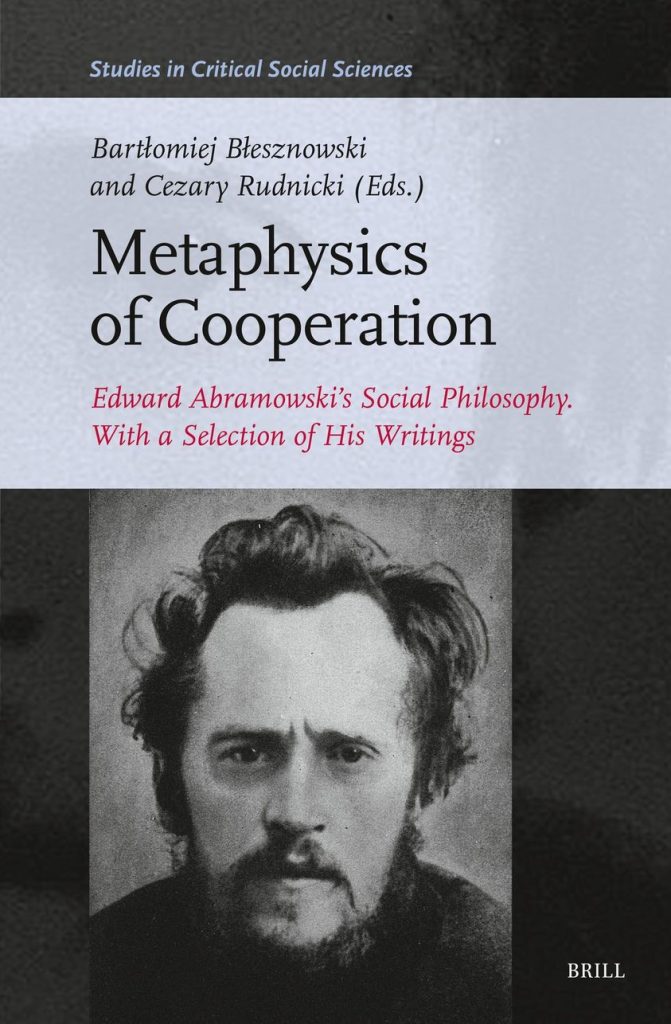
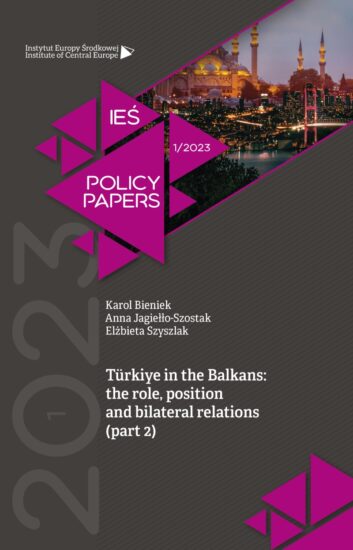
Türkiye in the Balkans: the role, position and bilateral relations (part 2)
The main goal of this paper is to analyse the current bilateral relations between Turkiye and Serbia, Romania and Bulgaria. While the main focus is on high-level political dialogue, political stability and security across the region, as well as growing economic contacts, soft power elements such as religious, historical, ethnic and cultural links with the Balkan states have a significant part to play too.
IEŚ Policy Papers 1/2023
Party narratives about electoral defeats
How do political parties change after suffering an electoral defeat? One can learn about those processes, illustrated by research on parties from Poland, Belgium and the United Kingdom, from the book “Electoral Defeat and Party Change. From Makeover to Retouching”.
– The monograph is the result of extensive empirical research of political parties affected by electoral defeat. We have analysed the response to the negative election result of more than 70 parties from most European states, focusing on the impact of defeat on party leadership, programme offer and party membership. Further, the qualitative research carried out in Belgian, British and Polish parties was used for an analysis of party narratives about defeat. From in-depth interviews with party leaders, parliamentarians and activists, we have obtained an original image of stories of defeat constructed for external and intra-party use, applied by political parties to explain the causes and context of the defeat, indicate the culprits, explain the consequences of the unfavourable outcome of the elections for the party organisation – says the co-author of the monograph, prof. dr hab. Anna Pacześniak of the Chair of European Studies.
The originality of the publication, especially its description of the subjective context of an election defeat, was appreciated by the international community of political party researchers, including by such scholars as professor Thomas Poguntke of the University of Düsseldorf, professor Anika Gauja of the University of Sydney, professor Kris Deschouwer of the Free University of Brussels and professor Nicole Bolleyer of the University of Munich.
The book was published as a part of the project funded by the National Centre for Science (NCN) within the OPUS scheme. The book marks successful completion of the project titled “Electoral defeat as a catalyst of change in European political parties”.
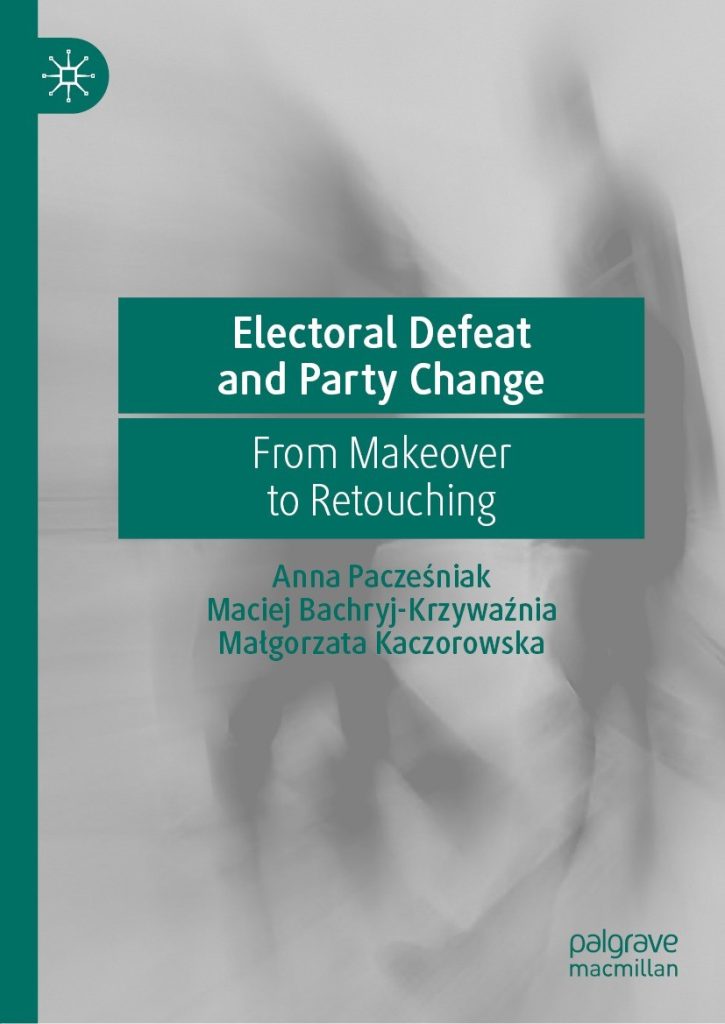
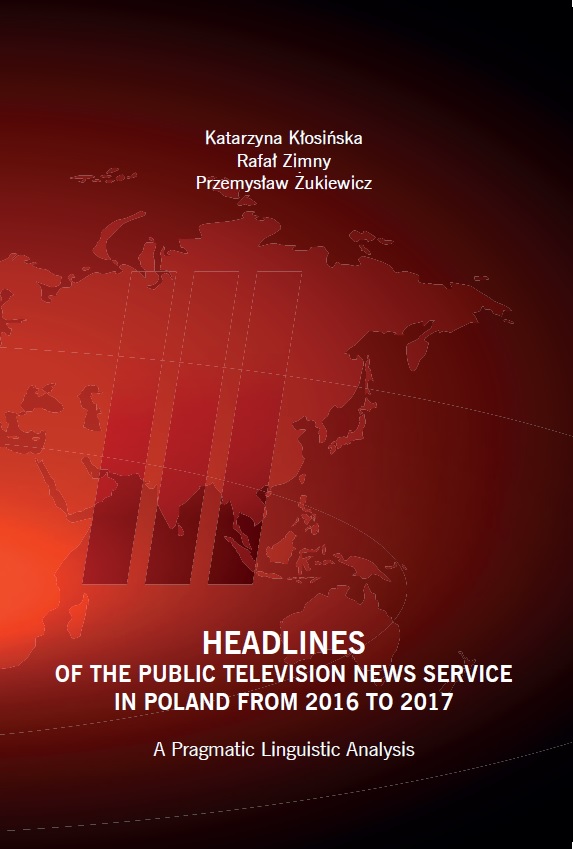
New book about the headlines in “TVP News”
Only one in four analysed headlines represented information intentionally devoid of evaluation. The others – more or less explicitly – valued the events or entities presented later in the audiovisual material: these are the results of the research of the team including dr hab. Przemysław Żukiewicz, prof. UWr of the Institute of Political Science.
The research conducted by a team of researchers, including also prof. Katarzyna Kłosińska of the University of Warsaw and President of the Council for the Polish Language at the Presidium of the Polish Academy of Sciences, and Rafał Zimny of Kazimierz Wielki University in Bydgoszcz, was finished with an English-language scientific monograph titled “Headlines of the Public Television News Service in Poland from 2016 to 2017”.
The authors of the book confirmed, among others, that the headlines broadcast in the “TVP News” present a one-sided picture of the world based on the positive image of the governing coalition and the negative image of entities critical of the ruling elite. Persuasion and manipulation can be observed in many headlines, most of them serve other goals than objective provision of information. The researchers pointed to the possible negative social consequences of the analysed communication practices, including undermining citizens’ trust in public media, weakening of the sense of civic community and acceptance of verbal aggression in conducting political disputes.
